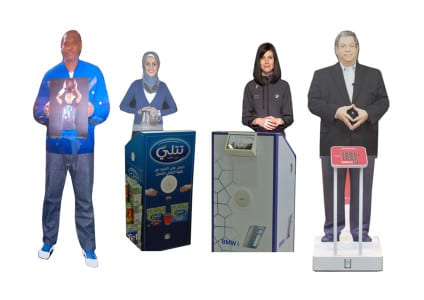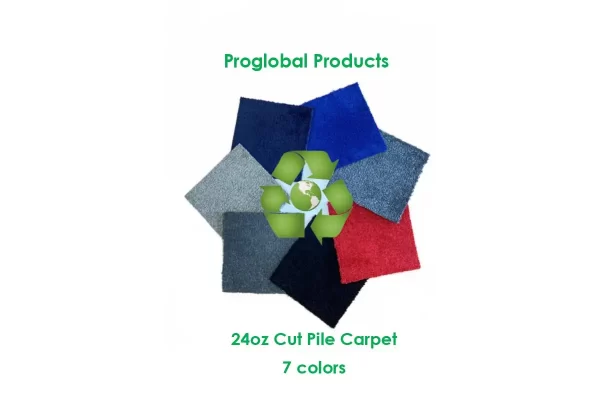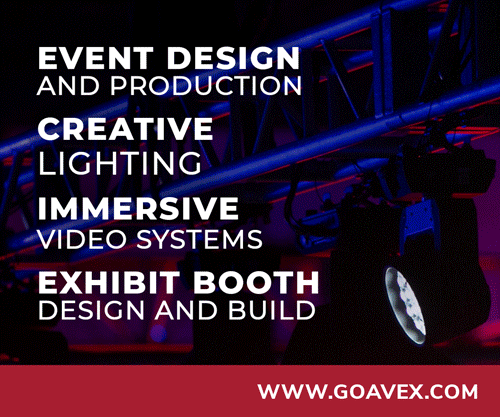Tweet
Digital signage usage is growing rapidly in retail environments – a response to the world becoming more accustomed to moving-image media and competition from online stores.
“The ability to have that ‘wow factor’ and update digital signage continually with new messaging is the most important thing in the retail industry. You get value that lasts over time instead of buying printed signage you’d have to dispose of in a couple of months,” explained Martin Carmody, senior design engineer, Tensator.
The diversity and flexibility integral to digital signage contributed to its rise in popularity among brick-and-mortar retailers, a major audience Tensator serves through its digital signage and queue management solutions. The international corporation also provides digital signage solutions to the tradeshow, automobile and airport industries, among others.
 “I personally think an exciting dynamic visual environment, a lot like Las Vegas, gets the message to us better than static, flat images like printed graphics,” he added. “Digital signage has the ability to be diverse in its messaging. It’s bright and colorful. It has the ability to give realism and motion at the same time.”
“I personally think an exciting dynamic visual environment, a lot like Las Vegas, gets the message to us better than static, flat images like printed graphics,” he added. “Digital signage has the ability to be diverse in its messaging. It’s bright and colorful. It has the ability to give realism and motion at the same time.”
Taking the diversity of digital signage further, Tensator customizes a line of virtual assistants that serve as interactive, informational and instructional guides; they represent in-store or country culture and highlight brands, products or messages that can be continually updated via SD card. Virtual assistants instantly welcome visitors due to their infrared proximity sensors, and they can deliver maps, videos and up to 11 messages at the push of a button.
Each virtual assistant projects the illusion of a real person due to being based on actors and well-known individuals like basketball player Carmelo Anthony or race car driver Tony Stewart, who all collaborated with Tensator’s film studio. This studio conducts casting calls, reaches out to other casting studios and uses Craigslist to find actors for the scripts Tensator creates.
“Virtual assistants can be anybody as long as it reflects your messaging. Our end is to get your message out successfully,” said Carmody. “We will work with you to find an actor through casting. We have actors who we previously worked with and are comfortable with and others we screened and think are presentable.”
Because Tensator has offices in North and South America, Europe and the Middle East, each virtual assistant reflects the location in which it’s based. In the Kuwaiti grocery store Tetley Tea, a virtual woman wearing a hijab and speaking Arabic can be found teaching customers how to make tea. In the Dubai International Airport, a virtual man also dons the traditional clothes of his country.
“The message Tetley Tea wanted to give out to Arabic nations required that kind of outfit to add legitimacy to the presentation,” he explained. “The Arabic ones can be very diverse in terms of acceptable behavior and cultural norms. It’s different in the UK and Dubai because of their cultures, which I respect. If there is a need for special circumstances, we will be happy to work with clients on it. We want to make sure they are comfortable and that we get their message out.”
Tensator’s database of multilingual actors allows the company to create virtual assistants that deliver messages in many languages.
“We have a Spanish-English casting file that [clients] can go though. We did one for CARite, where an English speaker opened her hand and then appeared another actress image who spoke Spanish. There are a number of ways we can get the message out there,” said Carmody.
The company’s solution for English-only speaker Mitchell Modell, CEO of Modell’s Sporting Goods, was creating a virtual assistant of him that included subtitles as he spoke. All 11 buttons of the Modell virtual assistant had a separate language, from Portuguese to Arabic or Chinese, Japanese and Korean.
Not only does Tensator offer language customization, its virtual assistants also come in different sizes to complement an environment.
“Space matters. Retail is totally different from an airport, stadium or bank. In retail, it’s important that we give them an effective virtual assistant that uses as little space as possible. Our smallest unit, the Ultra, is designed to work inside a retail environment,” he said.
These smaller virtual assistants could also be used inside tradeshow booths to complement sales staff, and larger-sized models could greet attendees on the show floor.
“As greeters, virtual assistants can give directional information at a tradeshow. We have the actress looking at her cellphone and looking around to see if anyone is there,” he explained. “She tells you about the show, the venue it’s in and invites you to come over and access more information. She can tell you how to go to different food courts and other sights at the tradeshow. If there are seminars offsite at a different location, she can tell you how to get there.”
When not creating virtual assistants for a multitude of industries, Tensator specializes in other digital signage solutions to control people flow in and out of retail stores like TJ Maxx, airports, arenas and theaters. The company also offers systems designed to increase impulse purchases at retail stores.
For more information about Tensator’s products, visit www.tensator.com.




























